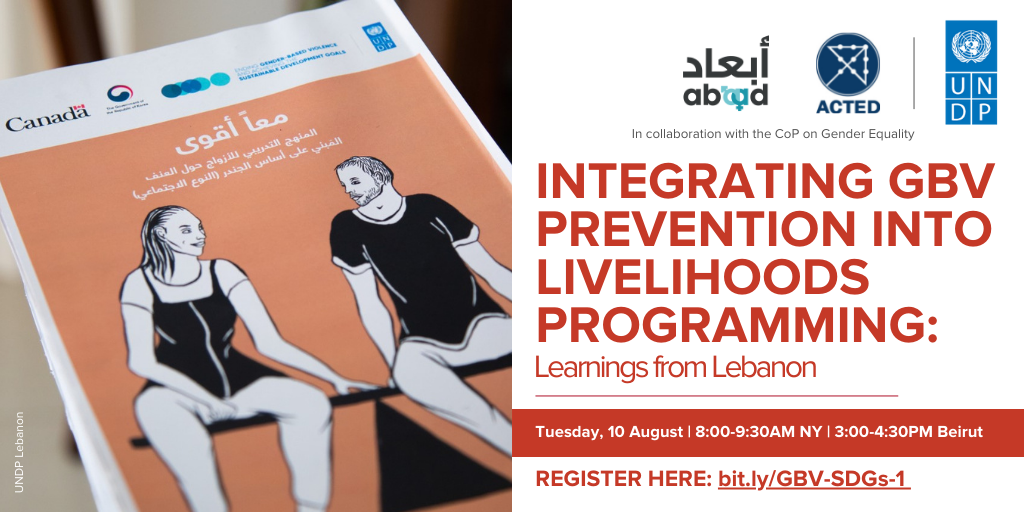
Background information
Building on the increased global recognition of the connection between gender-based violence (GBV) and the achievement of inclusive and sustainable economic growth and decent work for all (SDG 8), UNDP Lebanon and its partners, ABAAD and ACTED, are implementing a gender transformative project which integrates GBV prevention strategies into women’s economic empowerment (WEE) programming.
This initiative adapts the Indashykirwa model for Syrian and Lebanese host communities, and seeks to address the underlying social norms perpetuating gender inequality and power imbalances. It is part of UNDP’s global project, “Ending Gender-based Violence and Achieving the Sustainable Development Goals (2018-2021)”, which is testing new tools and approaches that reduce GBV and accelerate progress towards other development goals, such as economic empowerment and climate change.
This upcoming webinar will be the first in a series of three online discussions throughout the remainder of 2021. It will provide an overview of the project and will share key learnings, including critical success factors, challenges and benefits of integrating evidence-based GBV prevention into economic empowerment projects.
Speakers:
- Jesus Sanchez Mugica, UNDP Gender Team
- Renata Rubian, Policy Advisor, Inclusive Growth, UNDP
- Dr Anik Gevers , Technical Lead for Integration Pilots of the UNDP Ending GBV and Achieving SDGs project
- Joseph Nakhle, Project Manager, ACTED
- Sawsan Nourallah , National Gender Analyst, UNDP Lebanon
- Gary Zeitounalian , Gender Program Technical Support / Senior Grants & Partnership Coordinator, ABAAD

Please log in or sign up to comment.